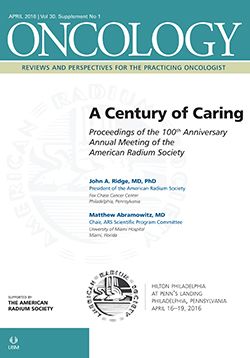(S005) Comparison of Legal Needs of a Group of Patients With Cancer: Economic and Geographic Factors
Differences in the legal needs of economically and geographically diverse patients with cancer suggest that those needs are not determined solely by disease state but that they also correspond with geographic and economic characteristics.
Serguei A. Castaneda, MD, Tomas Bednar, JD, MA, Roderick Price, MS, Lydia Komarnicky-Kocher, MD; Department of Radiation Oncology, Cancer Center, Hahnemann University Hospital and Drexel University College of Medicine
BACKGROUND: Medical-legal partnerships (MLPs) identify and serve the legal needs of vulnerable patient populations. The specific legal needs of patients with cancer in urban hospitals are not completely characterized.
OBJECTIVE: To identify the legal needs of a group of patients from our cancer center, and the relationship between these needs and geography and income.
METHODS: We collected de-identified data on legal needs and demographic variables in 94 patients. We stratified patients into three groups, according to their income: (1) above the national average (> $53,046), (2) below the national average but above Medicaid eligibility for a family of three ($27,310–$53,046), and (3) below the line of Medicaid eligibility (< $27,310). We then compared the legal needs of these three subgroups with those of the total patient population.
RESULTS: Fifty-four percent of patients from the poorest zip codes showed a primary interest in income management and public benefits compared with 37% of the total population, whereas 47% of those from the most affluent areas had the strongest interest in advanced planning documents compared with 29% of the total population. In contrast, those from the middle-income group had a seemingly even distribution of needs compared with the total population. Needs related to consumer/employment (24%) and Medicaid/Medicare (22%) were distributed somewhat uniformly across the three subgroups. Furthermore, patients from the affluent zip codes identified needs in only five out of eight categories, leaving out housing, utilities, and miscellaneous, whereas the other two groups identified issues in nearly all of the categories.
CONCLUSIONS: Differences in the legal needs of economically and geographically diverse patients with cancer suggest that those needs are not determined solely by disease state but that they also correspond with geographic and economic characteristics. MLPs could help to anticipate and serve the specific legal needs of patients in urban cancer centers and possibly even patients with cancer in general.
Proceedings of the 98th Annual Meeting of the American Radium Society - americanradiumsociety.org
